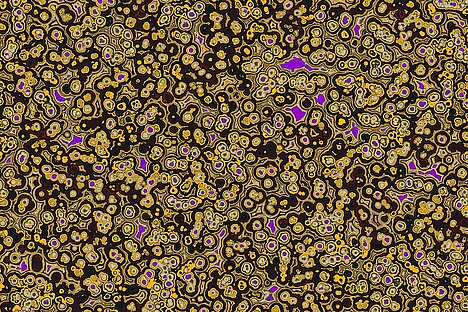Clostridia

Clostridia are bacteria that can cause various digestive problems in dogs. They are widespread in the environment and are also normally found in the intestines of dogs. However, if they multiply too much or are ingested through food or feces, they can produce toxic substances that make the dog sick. In this article you will learn how to recognize, prevent and treat clostridia in your dog.
What are clostridia?
Clostridia are so-called spore formers, which means that under unfavorable conditions they can go into a kind of dormant state in which they are very resistant to heat, cold, dryness and disinfectants. There are more than 100 different types of clostridia that can cause various diseases. Some of the best known are
- Clostridium perfringens: this pathogen is responsible for about 20 percent of all diarrheal diseases in dogs. It produces various toxins that damage the intestinal mucosa and can lead to inflammation, bleeding and pain.
- Clostridium difficile: This pathogen mainly comes to light after antibiotic therapy, as it is resistant to many antibiotics and can then multiply unhindered. It also produces toxins that can lead to severe diarrhea with mucus and blood.
- Clostridium botulinum: This pathogen is the cause of the dreaded botulism, a life-threatening poisoning of the nervous system. It is mainly found in spoiled meat or fish and can be ingested by eating carrion or raw meat. It produces a toxin that can lead to paralysis of the muscles, respiratory distress and cardiac arrest.
How do you recognize clostridia in dogs?
The symptoms of a clostridial infection in dogs depend on the type of pathogen and the amount of toxins. The most common signs are
- Diarrhea with mucus and/or blood
- vomiting
- Loss of appetite
- fatigue
- fever
- abdominal pain
- flatulence
The symptoms can occur acutely or chronically and can be more or less pronounced depending on the severity. In some cases, clostridia can also be present in the dog's intestines without symptoms and only become active when the immune system is weakened.
How is a clostridial infection diagnosed in dogs?
To diagnose a clostridial infection in dogs, the vet must examine a sample of the dog's feces. He can detect both the bacteria themselves and the toxins they produce. However, as clostridia can also occur in the intestines of healthy dogs, the vet must also rule out other possible causes for the symptoms, such as parasites, fungi, viruses or other bacteria.
How is a clostridial infection in dogs treated?
The treatment of a clostridial infection in dogs depends on the severity of the disease and the general condition of the dog. As a rule, treatment consists of the following measures:
- Antibiotics: The vet prescribes the dog a special antibiotic that is effective against the clostridia. Care must be taken to ensure that the antibiotic does not lead to further disruption of the intestinal flora or make other bacteria resistant.
- Fluid intake: As the dog loses a lot of fluid and electrolytes due to the diarrhea and vomiting, it must be supplied with sufficient water and, if necessary, infusions to prevent dehydration.
- Light diet: During treatment, the dog should only be given easily digestible food that does not irritate the intestines. For example, boiled chicken with rice or special diet food from the vet are suitable.
- Probiotics: To rebuild the dog's intestinal flora and strengthen the immune system, it can be given probiotic preparations containing beneficial bacteria. These can displace the clostridia and protect the intestinal mucosa.
How can you prevent a clostridial infection in dogs?
To prevent a clostridial infection in dogs, you should pay particular attention to good hygiene and a healthy diet. The following tips can help to reduce the risk:
- Deworm and vaccinate the dog regularly
- Do not allow the dog to drink from puddles or stagnant water
- Do not let the dog sniff or eat feces or carrion
- Do not feed the dog raw meat or fish or only under strict hygiene measures
- Do not treat the dog unnecessarily with antibiotics or stop the therapy too early
- Do not change the dog's food frequently or only change it gradually
- Protect the dog from stressful situations or help it to cope with them
Clostridia are bacteria that can cause various digestive problems in dogs. They are widespread in the environment and are also normally found in the intestines of dogs. However, if they multiply too much or are ingested through food or feces, they can produce toxic substances that make the dog sick.
The authors assume that a veterinarian should be consulted if an animal is ill and that medication should only be taken after consultation with a doctor or pharmacist. Only an individual examination can lead to a diagnosis and treatment decision.
We help you find the nearest vet → This way